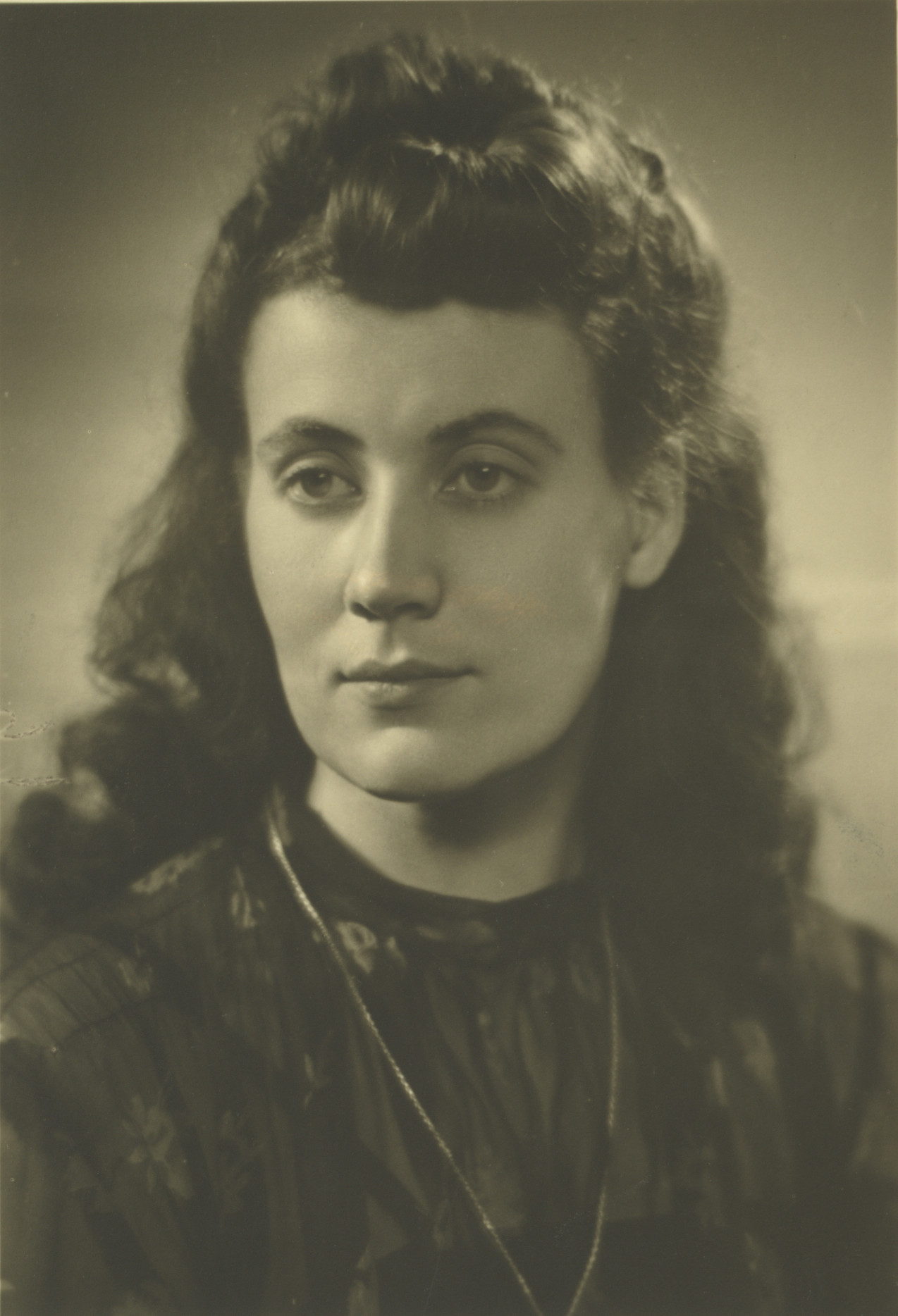
Debora Vaarandi
Debora Vaarandi (born Debora Trull, later Debora Hint, Debora Smuul, 1. X 1916 – 28. IV 2007) was one of the most significant and influential Estonian poets of the period right after the Second World War.
She was born in Võru, but her childhood passed in Tallinn and on Saaremaa. She graduated from Saaremaa co-educational Gymnasium and enrolled in the faculty of philosophy at the University of Tartu. During her student days she published reviews in the literary journal Eesti Kirjandus and the newspaper Postimees. After the imposition of Soviet power in Estonia in 1940 she worked in the culture section of the newspaper Rahva Hääl, she was deputy editor of the cultural journal Sirp ja Vasar and later its chief editor. Debora Vaarandi spent the war years as an evacuee in Soviet Russia and Kazakhstan, working in Moscow and Leningrad for Rahva Hääl. In 1944 she returned to Estonia. In Estonia she returned to work as editor of Sirp ja Vasar. Because of the difficult conditions and poor health during and after the war she did not complete her university studies. Debora Vaarandi was a member of the CPSU from 1940 to 1990.
Vaarandi wrote numerous lyrical-philosophical poems and emotional verse. Her debut collection Põleva laotuse all (‘Under a Burning Vault’), mostly written abroad, appeared in 1945. The free-verse collection was suffused with a spirit of homesickness. In addition to the obligatory exaltation of Stalin there were in it a lot of vivid descriptions of nature. The composer Raimond Valgre lifted the final part of Debora Vaarandi’s poem Talgud Lööne soos (‘Working-bee at Lööne Marsh’) as the lyrics of his highly successful song Saaremaa valss (‘Saaremaa Waltz’) which is widely known and sung to this day.
With the collection Unistaja aknal (‘Dreamer at the Window’, 1959) Vaarandi brought to Estonian poetry the sincerity, warmth and simplicity that readers, worn out by war, repression and ideological battles had been longing for. For the poem Eesti mullad (‘Estonian Soils’) Vaarandi was awarded the first Juhan Liiv poetry prize in 1965. In the sixties and seventies Vaarandi matured as a poet; the images and associations she used became more abundant. The mournful tone of the poems remained. The collection Tuule valgel (‘In the Light of the Wind), which appeared in 1977, was Vaarandi’s last original collection. Thenceforward she devoted herself to translating.
Debora Vaarandi was a prolific translator. She translated from Finnish, German and Russian, the works of such authors as Georg Trakl, Bertolt Brecht, Sergey Esenin, Aleksandr Blok, and Aleksis Kivi.
L. P. (Translated by C. M.)
Books in Estonian
Poems
Põleva laotuse all. Tallinn: Ilukirjandus ja Kunst, 1945, 72 lk.
Kohav rand. Tallinn: Ilukirjandus ja Kunst, 1948, 136 lk.
Talgud Lööne soos. Tallinn: Tallinna Riiklik Tarbekunsti Instituut, 1949, 18 lk.
Selgel hommikul. Tallinn: Eesti Riiklik Kirjastus, 1950, 95 lk.
Ülemiste vanake ja noor linnaehitaja. Poeem. Tallinn: Eesti Riiklik Kirjastus, 1952, 30 lk.
Luuletused. Valik luuletusi 1941–1953. Tallinn: Eesti Riiklik Kirjastus, 1953, 160 lk.
Luuletused. Tallinn: Eesti Riiklik Kirjastus, 1956, 160 lk.
Unistaja aknal. Tallinn: Eesti Riiklik Kirjastus, 1959, 128 lk.
Rannalageda leib. Tallinn: Eesti Raamat, 1965, 96 lk.
Tuule valgel. Tallinn: Eesti Raamat, 1977, 120 lk.
Luuletused 1940–1954. Tallinn: Eesti Raamat, 1980, 211 lk.
Luuletused 1954–1976. Tallinn: Eesti Raamat, 1981, 239 lk.
See kauge hääl. Tartu: Ilmamaa, 2000, 190 lk.
Travelogues
Uuenevate mälestuste linnad. Tallinn: Eesti Riiklik Kirjastus, 1964, 275 lk.
Välja õuest ja väravast. Reisimärkmed. Tallinn: Eesti Raamat, 1970, 152 lk.
Reisimärkmeid, mälestusi. Tallinn: Eesti Raamat, 1982, 303 lk.
Memoirs
Aastad ja päevad. Nooruselugu. Tallinn: Tänapäev, 2006, 335 lk.



